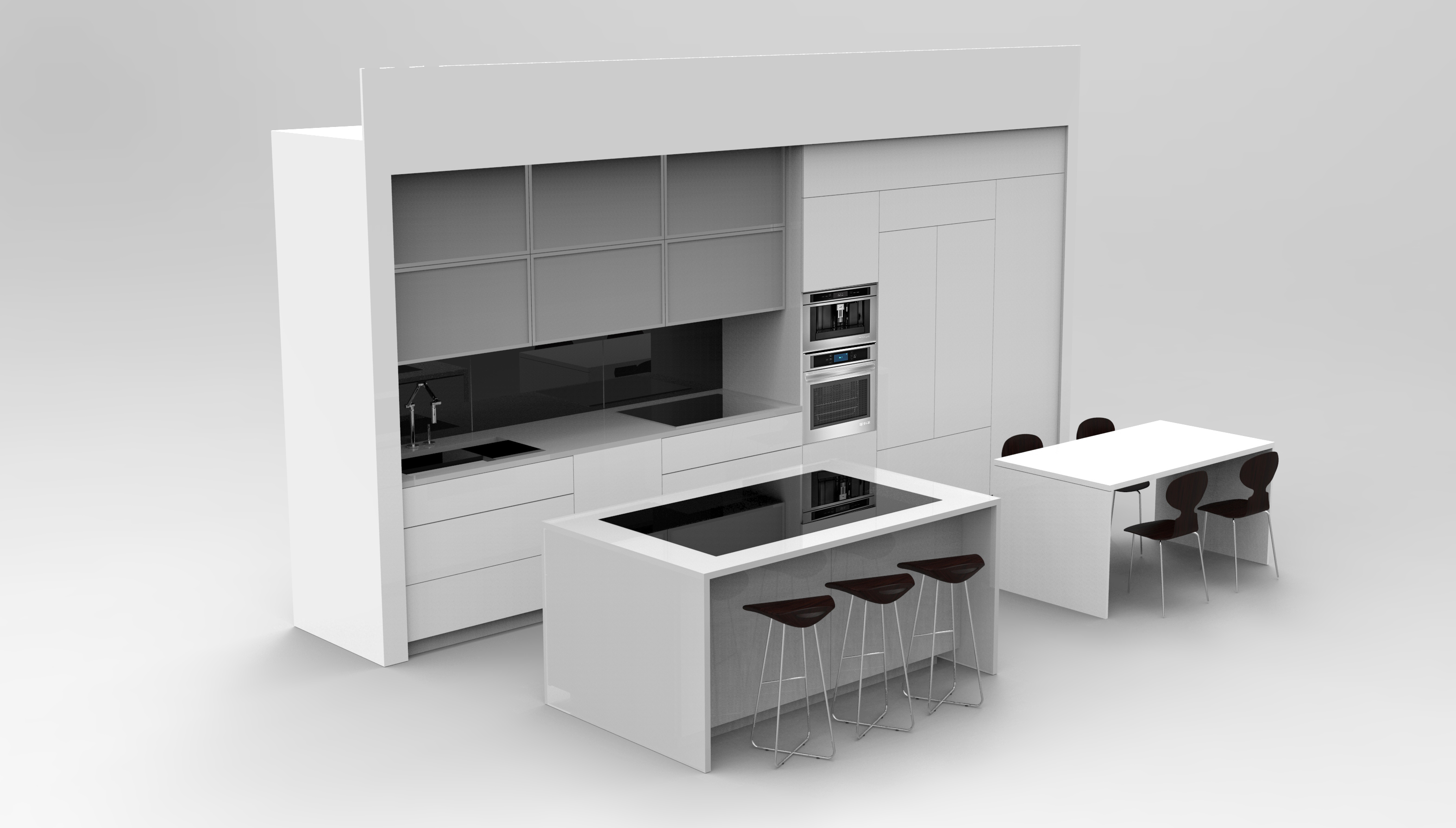Kitchen of the future to debut in Las Vegas

The Virginia Tech Center for Design Research, part of the College of Architecture and Urban Studies, will unveil the innovative future of kitchen design and construction Jan. 20-22 at the Kitchen & Bath Industry Show in Las Vegas. The show is North America’s premier annual event dedicated to the kitchen and bath industry.
The kitchen is part of a research project that explores manufacturing strategies and the greater integration of technology with architecture, or the industrial production of smart homes.
Lead researcher Joseph Wheeler, professor of architecture and co-director of the Center for Design Research, was a lead for the LumenHAUS project that won the International Solar Decathlon competition in Madrid, Spain, and received a 2012 AIA Honor Award for Excellence in Architecture.
Denis Gracanin, associate professor in the College of Engineering’s Department of Computer Science who also played a key role with LumenHAUS; Wheeler; and a team of students and faculty from industrial design, architecture, interior design, visual communication design, and computer science set their sights on something larger with this project.
The kitchen is the first phase of a three-year plan to construct a two-story FutureHAUS. While this is the kitchen — and ultimately the house — of the future, it isn’t science fiction. “The future is now,” Wheeler said. “The technology is here now. It just isn’t being fully integrated yet.”
The team explored how technology can enhance user experience throughout the kitchen. For example, an oven camera allows bakers to monitor their confections from anywhere in the house, and a refrigerator detects when staples such as milk are running low or out of date.
High-definition displays mounted in the backsplash can serve as a virtual window or a handy place to display recipes while cooking. A glass countertop provides an uninterrupted work surface, but convection burners mounted beneath allow it to become a cooktop when needed.
The team also considered accessibility and aging issues and incorporated features such as touch and gesture devices that open cabinets and appliances.
Technology is also a key focus in the construction. The kitchen — and eventually the entire FutureHAUS — highlights how assembly-line technology could be used to build the kitchen as a complete modular “cartridge” that can be delivered to a site fully assembled, just as the intact kitchen will be transported from Virginia to Nevada.
And while modular construction leads to economies of scale for production, the focus is not on making things cheap. Similar to the customizable production of luxury cars, these cartridges can contain high-end finishes, appliances, and technology while increasing quality control standards and precision in the production process.
“We’re not changing the final product, we are just changing the process to get there,” Wheeler said. “We can deliver the kitchen of the future through a process that’s really construction of the future.”
The next phase of the FutureHAUS design process is the addition of a living room alongside the kitchen that will debut at the American Institute of Architects national convention May 14-16 in Atlanta.







